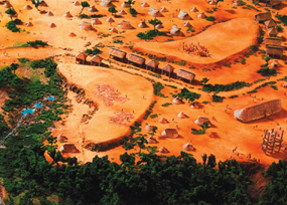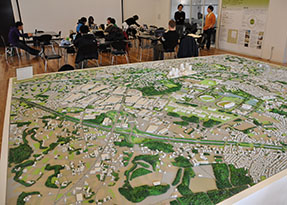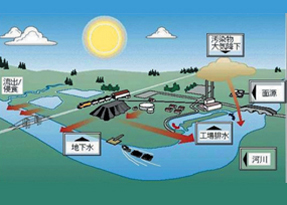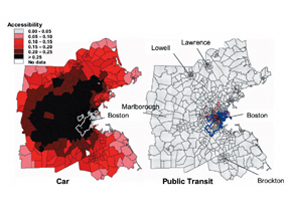|
Our department comprises three core programs - Society and Humanity, Spatial Planning and Design, Water and Material Cycle - as well as the course Spatial Information Science. We engage in education and research on analysis, evaluation, prediction, creation, and management of physical and socio-cultural environments at the residential, architectural, urban, regional, and global levels.
The Society and Humanity program researches civic movements and environmental problems from the perspective of urban sociology, examining the ways in which residents control environmental problems, in the context of the formation of social and legal norms. We also use cognitive/behavioral theory, paleoarchaeology, and ethnoarchaeology to form models of environmental information and human behavior within the environment, and to conduct survey-based investigation of the socio-cultural interrelationships between humans and the environment/ecosystem.
The Spatial Planning and Design program concentrates on the collection, analysis, and integration of spatial environment information, and methods for formulating and assessing designs, with emphasis on application to urban planning and building system design. Through this research, we tackle the problems of living environments (buildings and urban space) by developing design methods and technologies that can support the creation of comfortable and sustainable environments. In addition, we explore problems in optimizing the environment load of infrastructural safety, with the goals of evaluating building resistance to earthquakes and strong winds, and developing techniques for information processing and prediction of natural environment disturbances.
The Water and Material Cycle program deals with challenges in the optimization of environmental control technologies, including investigation of strategies for applying microbial functions to environmental control. Furthermore, we conduct coastal environment research for the purpose of simulating coastal material cycles and ecosystems based on theory, experimentation, and observation, and using those findings to develop methods of prediction and assessment.
Our efforts in research and education also include Spatial Information Science courses, which are offered with the cooperation of the Center for Spatial Information Science. The informatization of problems pertaining to urban environments and regional economies plays a major role in the decision-making processes associated with environmental assessment, environmental design, municipal/regional policy, and other such areas. As the many products of spatial information science provide a platform for the advancement of socio-cultural environmental studies, this partnership can be expected to lead to the creation of new environmental sciences.
|

Sannai-Maruyama site: Re-creation of Jomon-era ecosystem

Diorama and Design studio of the UDCK

Water cycle and human society: Harmonizing the ecosystem

GIS-based analysis of public transport convenience
|




